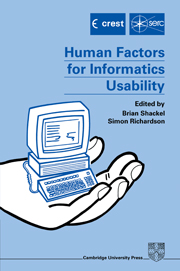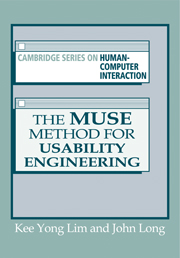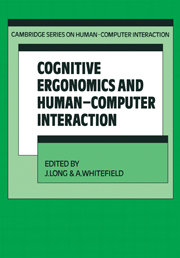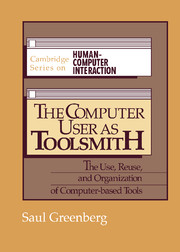Human Factors for Informatics Usability
Human factors is one of the critical issues in Information Technology, as industry realizes the need to change from technology-oriented goals to meet the demands of computer users. Human factors can help to improve Informatics Usability for real people, and to reduce the huge people-costs of human machine interactions. This book has been developed from lectures given at an Advanced Study course, sponsored by the European Science and Technology Research Committee of the Commission of the European Communities (CREST), and by the Science and Engineering Research Council (SERC) of the UK. It has three objectives: 1. To review the knowledge and methods available from the field of human factors for improving the usability of informatics systems; 2. To describe recent theoretical and methodological developments in the area; 3. To stimulate increased application of this expertise.
Product details
June 2008Paperback
9780521067300
464 pages
234 × 156 × 24 mm
0.65kg
Available
Table of Contents
- Preface
- Contributors
- Acknowledgements
- Part I: Informatics Usability - Background and Overview
- 1. Human factors for informatics usability - background and overview
- 2. Usability - context, framework, definition, design and evaluation
- 3. The business case for human factors in informatics
- Part II: System Design - Orientation and Approaches
- 4. Human factors contributions to the design process
- 5. Helping the IT designer to use human factors
- 6. Interface design issues for the system designer
- 7. An approach to formalised procedures for user-centred system design
- Part III: Special Topics in Depth
- 8. The contributions of applied cognitive psychology to the study of human-compute interaction
- 9. Formal models and techniques in human-computer interaction
- 10. Designing expert systems for usability
- Part IV: Organisational Aspects and Design in Large Systems
- 11. Organisational issues and task analysis
- 12. Participation in systems design - what can it offer?
- 13. Towards a human factors strategy for information technology
- Part V: Design and Evaluation - Some Specific Methods
- 14. A taxonomy and rule base for the selection of interaction styles
- 15. Designing and evaluating documentation for IT users
- 16. Evaluating usability
- References
- Author index
- Subject index.






